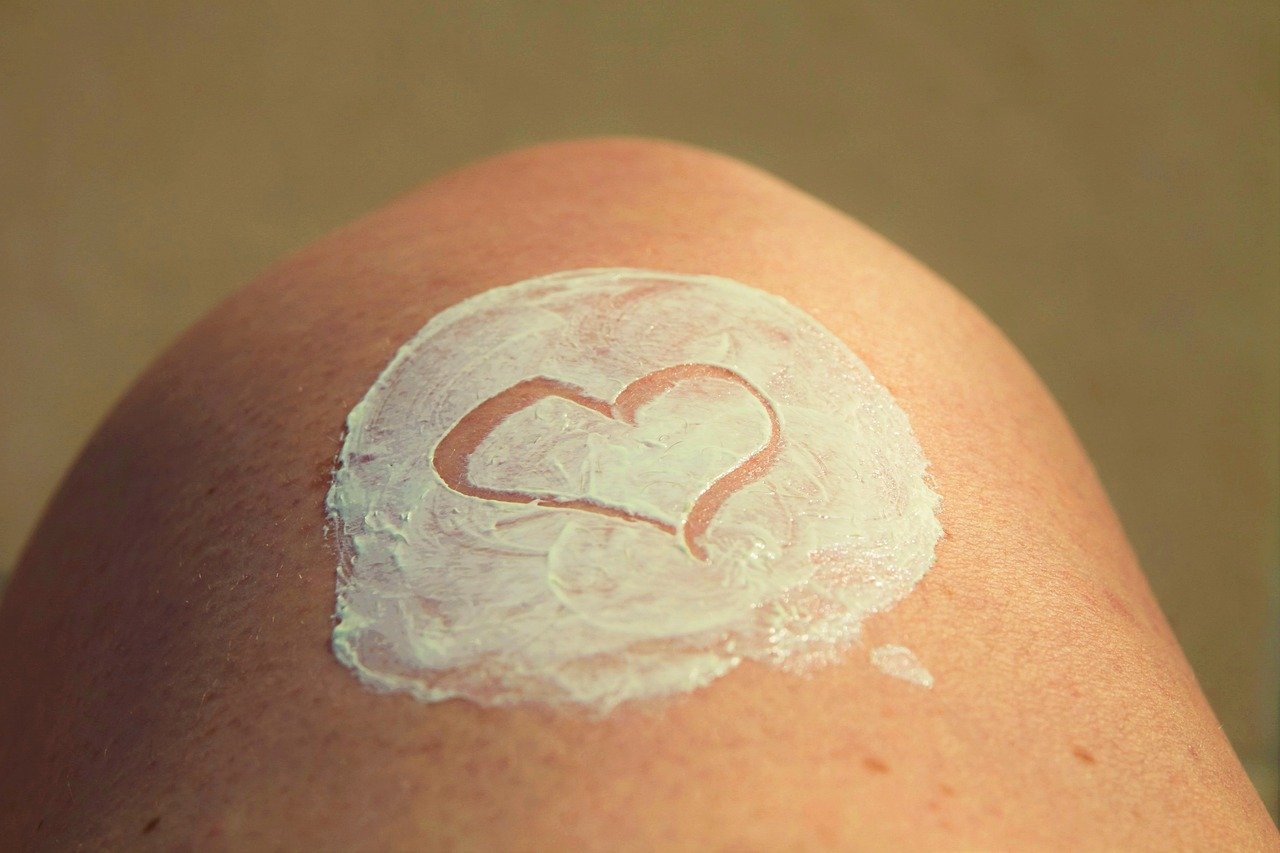When it comes to protecting your skin from the harmful effects of the sun, choosing the right sunscreen is crucial. With so many options available on the market, it can be overwhelming to determine which sunscreen will offer the best protection for your unique needs. That’s where experts come in! In this article, we’ll explore the recommendations given by experts in the field, helping you make an informed decision and ensuring you can enjoy the sun safely. Whether you’re planning a beach vacation or simply spending time outdoors, finding the perfect sunscreen is your first step towards shielding your skin from those harmful UV rays.
Understanding Sunscreen
Sunscreen is a crucial part of our daily skincare routine. It helps to protect our skin from the harmful rays of the sun and reduce the risk of skin damage, premature aging, and even skin cancer. But what exactly is sunscreen, why do we need it, and how does it work?
What is sunscreen?
Sunscreen, also known as sunblock, is a topical product that is designed to absorb or reflect the sun’s ultraviolet (UV) radiation. It comes in different forms, including lotions, creams, gels, sprays, and sticks, making it accessible and convenient for everyone.
Why do we need sunscreen?
The sun emits two types of harmful UV rays: UVA and UVB. UVA rays penetrate deep into our skin, causing premature aging and wrinkles, while UVB rays are responsible for sunburns. Prolonged exposure to these rays can lead to more serious consequences, such as skin cancer. By using sunscreen regularly, we can minimize the damaging effects of these rays on our skin.
How does sunscreen work?
Sunscreen contains active ingredients that work by either absorbing or reflecting UV rays. Chemical sunscreens contain organic compounds that absorb the rays and convert them into heat, while physical or mineral sunscreens contain minerals like zinc oxide or titanium dioxide that act as a barrier to reflect the rays. This dual-action protection helps to shield your skin from both UVA and UVB rays.
What are SPF and broad-spectrum?
When choosing a sunscreen, you may come across terms like SPF and broad-spectrum. SPF stands for Sun Protection Factor and refers to the level of protection a sunscreen provides against UVB rays. A higher SPF means increased protection and longer-lasting coverage. On the other hand, broad-spectrum sunscreens protect against both UVA and UVB rays, ensuring comprehensive protection for your skin.
Types of Sunscreen
With an overwhelming number of sunscreen options available in the market, it can be challenging to determine which type suits your needs best. Here are the common types of sunscreen to help you make an informed decision:
Chemical sunscreens
Chemical sunscreens contain organic compounds that absorb UV rays. These sunscreens are lightweight, blend well into the skin, and offer broad-spectrum protection. They are suitable for daily use and work well under makeup. However, some individuals may experience skin irritation or allergies due to the chemical ingredients.
Physical or mineral sunscreens
Physical or mineral sunscreens consist of minerals like zinc oxide or titanium dioxide that form a protective barrier on the skin’s surface to reflect and scatter UV rays. They are gentle on the skin, making them suitable for sensitive skin types. However, they may leave a white cast on the skin and can be thicker in consistency.
Combination sunscreens
Combination sunscreens combine both chemical and physical sunscreen ingredients to provide broad-spectrum protection. These sunscreens offer the benefits of both types, providing lightweight texture while still being gentle on the skin. They are a popular choice for many individuals.
Water-resistant sunscreens
Water-resistant sunscreens are specially formulated to withstand water and sweat, making them ideal for outdoor activities or swimming. However, it is essential to reapply them after a specific duration or whenever you towel dry your skin to maintain adequate protection.
Spray sunscreens
Spray sunscreens offer convenience and ease of application. They come in a spray form, allowing for quick and even coverage. However, it is essential to be cautious when applying spray sunscreens, ensuring that you cover all exposed areas and avoid inhalation.
Tinted sunscreens
Tinted sunscreens offer the added benefit of providing light coverage and evening out skin tone while protecting against the sun’s harmful rays. They can be a time-saving option, especially on days when you want a natural and minimal makeup look while staying protected.

Choosing the Right Sunscreen for Different Skin Types
As each individual’s skin is unique, it is important to consider your skin type when selecting a sunscreen. Here are some recommendations for different skin types:
Normal skin
If you have normal skin, you are fortunate to have fewer skin concerns. Look for broad-spectrum sunscreens with SPF 30 or higher to protect your skin from both UVA and UVB rays. You can choose from various sunscreen formats and textures according to your preference.
Sensitive skin
Those with sensitive skin need to opt for sunscreens that are fragrance-free, hypoallergenic, and gentle on the skin. Physical or mineral sunscreens are generally better tolerated as they contain fewer chemical ingredients. Patch testing a small area before regular use is advisable to ensure there are no adverse reactions.
Oily or acne-prone skin
For oily or acne-prone skin, water-based or oil-free sunscreens are preferable as they are lightweight and less likely to clog pores or contribute to breakouts. Look for non-comedogenic sunscreens that are labeled specifically for oily or acne-prone skin.
Dry or mature skin
Dry or mature skin requires sunscreens with added moisturizing properties to combat dryness and minimize the appearance of fine lines and wrinkles. Look for sunscreens that provide hydration and have nourishing ingredients like hyaluronic acid or ceramides.
Children’s skin
Children have delicate and sensitive skin that is more prone to sunburn and damage. It is crucial to use sunscreens specifically formulated for children, as these are generally gentle, hypoallergenic, and provide higher SPF. Additionally, sun-protective clothing and accessories like hats and sunglasses should be used to provide comprehensive sun protection.
Understanding SPF and Broad-Spectrum
Understanding the importance of SPF and broad-spectrum when selecting a sunscreen is essential. Here’s what you need to know:
What is SPF and its significance?
SPF, or Sun Protection Factor, measures the level of protection a sunscreen provides against UVB rays. It indicates how long it takes for the skin to burn when wearing sunscreen compared to when not wearing any. It is recommended to use a broad-spectrum sunscreen with an SPF of 30 or higher for effective protection.
What does broad-spectrum mean?
Broad-spectrum sunscreens provide protection against both UVA and UVB rays. This comprehensive protection is important as both types of rays can cause damage to the skin. Look for sunscreens labeled as “broad-spectrum” to ensure your skin is shielded from both types of harmful rays.
Choosing the right SPF level
The appropriate SPF level depends on various factors, such as your skin type, the amount of time you spend in the sun, and the intensity of UV radiation. Dermatologists generally recommend using a sunscreen with an SPF of 30 or higher, as this provides adequate protection for most people. However, if you have fair or sensitive skin, spending an extended amount of time in the sun, or have a history of skin cancer, a higher SPF is advisable.

Considerations for Outdoor Activities
Different outdoor activities may require specific types of sunscreens to ensure maximum protection. Consider the following:
Swimming and water-resistant sunscreens
For swimming or water-based activities, it is crucial to use water-resistant sunscreens that can withstand the water and provide continuous protection. Be sure to reapply the sunscreen as recommended on the label, especially after towel drying or extended time in the water.
Sweat-proof sunscreens
Engaging in sports or physical activities that result in excessive sweating may require sweat-proof sunscreens. These sunscreens are designed to adhere to the skin even during intense sweating, reducing the need for frequent reapplication.
Sports or high-performance sunscreens
Sports or high-performance sunscreens are specifically formulated to cater to individuals with an active lifestyle. These sunscreens offer long-lasting protection and are resistant to sweat, water, and friction, ensuring that your skin remains protected during intense physical activities.
Additional Features to Consider
In addition to the main considerations mentioned earlier, here are some additional features you may want to look for when selecting a sunscreen:
Fragrance-free sunscreens
If you have sensitive skin or are sensitive to fragrances, opt for fragrance-free sunscreens. These sunscreens are formulated without added fragrances, reducing the risk of skin irritation or allergic reactions.
Hypoallergenic sunscreens
Hypoallergenic sunscreens are suitable for individuals with sensitive skin or a history of allergies. These sunscreens are formulated to minimize the risk of allergic reactions, making them a safe choice for those with sensitivities.
Non-comedogenic sunscreens
Non-comedogenic sunscreens are designed to not clog pores, making them suitable for individuals with acne-prone or oily skin. These sunscreens help prevent breakouts and blemishes while providing necessary sun protection.
Oil-free sunscreens
For individuals with oily skin or those prone to greasiness, oil-free sunscreens are recommended. These sunscreens provide protection without adding excess oil to the skin, keeping your skin matte and shine-free.
Cruelty-free or vegan sunscreens
If you prefer to support brands that are cruelty-free or vegan, look for sunscreens that carry these certifications. These sunscreens are not tested on animals and do not contain any animal-derived ingredients, aligning with ethical and environmental values.

Application and Usage Tips
Applying sunscreen correctly and using it consistently is crucial to ensure optimal protection. Here are some useful tips to keep in mind:
How much sunscreen to apply?
To adequately protect your skin, aim to apply a sufficient amount of sunscreen. The general rule of thumb is to use about a shot glass-sized amount (about one ounce) to cover your entire body. If you are using a spray sunscreen, make sure to spray enough to form a visible, even layer on the skin.
How often should sunscreen be reapplied?
Sunscreen should be reapplied every two hours, or more frequently if you are swimming, sweating excessively, or towel drying your skin. Even water-resistant or sweat-proof sunscreens lose their effectiveness over time, so it is important to reapply regularly for continuous protection.
Proper sunscreen application techniques
To ensure even coverage, start by applying sunscreen to all exposed areas of your body. Don’t forget commonly forgotten areas, such as the ears, back of the neck, and tops of the feet. Gently massage the sunscreen into the skin until it is fully absorbed. If using a spray sunscreen, hold the bottle close to the skin and spray evenly, then spread it with your hands or a cloth.
Sunscreen usage during different seasons
It is important to wear sunscreen throughout the year, regardless of the season. Even on cloudy or winter days, UV rays can still penetrate the clouds and cause damage to your skin. Make sunscreen a part of your daily routine to maintain consistent sun protection.
Expert Recommendations
When it comes to skincare, it is always helpful to consult with experts. Here are some recommendations from dermatologists, pediatricians, and allergy specialists:
Dermatologists’ recommendations
Dermatologists recommend using sunscreens with broad-spectrum protection and an SPF of 30 or higher. They also advise reapplying sunscreen every two hours and using additional sun-protective measures like seeking shade, wearing protective clothing, and using sunglasses.
Pediatricians’ recommendations
Pediatricians emphasize the importance of using sunscreen on children’s delicate skin. They recommend using sunscreens specifically formulated for children, with a minimum SPF of 30. Additionally, they stress the need for sun-protective clothing and keeping infants under six months out of direct sunlight.
Allergy specialists’ recommendations
For individuals with allergies or sensitive skin, allergy specialists recommend opting for fragrance-free and hypoallergenic sunscreens. Physical or mineral sunscreens are generally better tolerated for those with sensitivities. They also advise conducting a patch test before regular use to ensure compatibility with the skin.

Common Myths and Misconceptions
There are several common myths and misconceptions surrounding sunscreen that need to be debunked:
Higher SPF means longer protection
Contrary to popular belief, a higher SPF does not mean longer-lasting protection. All sunscreens, regardless of their SPF, need to be reapplied every two hours or as indicated on the label. The SPF level primarily indicates the level of protection against UVB rays, not the duration of protection.
Dark skin doesn’t need sunscreen
While it is true that individuals with darker skin tones have more natural protection against the sun due to higher melanin levels, they are still susceptible to sun damage and the risk of skin cancer. Sunscreen should be applied to all skin tones, regardless of their darkness or lightness.
Sunscreen prevents vitamin D production
Some people believe that wearing sunscreen inhibits the production of vitamin D, which is synthesized by the body when exposed to sunlight. However, using sunscreen does not completely block vitamin D production. It is still possible to get enough vitamin D through regular sun exposure on other areas of the body or through dietary sources.
Sunscreen is only needed on sunny days
UV rays can penetrate clouds and even windows, leading to skin damage even on cloudy or overcast days. It is important to wear sunscreen every day, regardless of the weather conditions or the amount of time spent outdoors.
Importance of Sunscreen in Skin Protection
Now that we have a comprehensive understanding of sunscreen, let’s explore why it is so important for our skin’s health and well-being:
Reducing the risk of skin cancer
Regular use of sunscreen helps reduce the risk of skin cancer, including both non-melanoma and melanoma types. UV radiation is a known cause of skin cancer, and protecting ourselves from its harmful effects is crucial in preventing its development.
Preventing premature skin aging
Excessive sun exposure accelerates the aging process, leading to the formation of wrinkles, fine lines, and age spots. By wearing sunscreen daily, we can minimize the damage caused by UVA rays and maintain a youthful and healthy complexion.
Maintaining overall skin health
Sunscreen not only protects our skin from the harmful effects of UV rays but also helps maintain overall skin health. It prevents sunburns, reduces the risk of developing skin conditions like melasma and hyperpigmentation, and helps preserve the integrity of the skin’s barrier function.
In conclusion, sunscreen is an essential tool in protecting our skin from the harmful effects of UV radiation. By understanding the different types of sunscreens, choosing the right one for our skin type, and following expert recommendations, we can ensure optimal sun protection. Incorporate sunscreen into your daily skincare routine and make it a priority to safeguard your skin’s health and well-being.
